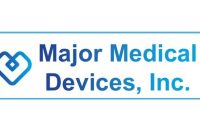Cary, N.C. and Basel, Switzerland, May 06, 2021 (GLOBE NEWSWIRE) — Altavant Sciences, a clinical-stage biopharmaceutical company focused on patient-centric drug development in rare respiratory diseases, announced today that the company has initiated its ELEVATE 2 Study, a Phase 2b clinical trial of its lead product candidate, rodatristat ethyl (“rodatristat”), for the treatment of patients with pulmonary arterial hypertension (PAH).
Rodatristat is an orally bioavailable, direct and reversible tryptophan hydroxylase (TPH) inhibitor designed to block peripheral serotonin production. In an earlier study in healthy volunteers, levels of 5-hydroxyindoleacetic acid (5-HIAA), a biomarker of peripheral serotonin, were reduced after 14 days of once-daily oral rodatristat administration. The degree of serotonin lowering was consistent with that observed in preclinical models of PAH that generated marked improvements in vessel remodeling.
“Dysregulated, excessive serotonin signaling in the lungs of patients with PAH is a life-threatening condition, causing excessive growth of pulmonary-artery smooth muscle cells as well as the release of proinflammatory and profibrotic molecules, all of which constrict pulmonary blood vessels,” stated Marc Humbert, M.D., Ph.D., Professor of Respiratory Medicine at the Université Paris-Saclay and an investigator in the ELEVATE 2 Study. “Decades of research point to the critical role of serotonin in PAH disease progression and support the hypothesis that by reducing levels of the hormone in the periphery, we may be able to improve, and potentially even reverse, pulmonary remodeling in these patients.”
Altavant’s ELEVATE 2 Study is a dose-ranging, randomized, double-blind, placebo-controlled trial in approximately 90 adults with confirmed diagnoses of symptomatic PAH belonging to one of several subtypes, including idiopathic, heritable or toxin-induced PAH, referred to as WHO Group 1 PAH. Enrolled patients will be randomized to receive one of two doses of rodatristat or placebo twice daily, while continuing their existing prescribed PAH treatments. Safety, pharmacokinetics and efficacy will be assessed at various points in the study’s screening, treatment and follow-up phases via in-clinic, home and telemedicine visits. Efficacy will be assessed as the percent change from baseline of pulmonary vascular resistance (PVR), as measured by right heart catheterization. Secondary efficacy endpoints include change in 5-HIAA, change in validated PAH scales, and change in six-minute walk test.
“Extensive in vivo and early clinical testing strongly support the rodatristat mechanism as a potential disease-modifying treatment for conditions characterized by excessive production of serotonin, including PAH,” added William T. Symonds, Pharm.D., chief executive officer of Altavant. “We are excited to advance our lead candidate into Phase 2b development, and by the opportunity to provide meaningful benefit to patients with this disease.”
“Tufts Medical Center, a PHA Center of Comprehensive Care, strives to be a leader in the diagnosis and treatment of patients with PAH,” stated Dr. Nicholas Hill, Chief Pulmonary, Critical Care and Sleep at Tufts Medical Center and an investigator in the ELEVATE 2 Study. “As a pulmonologist, it is particularly rewarding to be involved in the advancement of new treatments, especially those that have the potential to be disease modifying, like rodatristat.”
More information may be found on the Altavant Sciences website and on www.elevatePAHstudy.com.
About Pulmonary Arterial Hypertension
Pulmonary arterial hypertension (PAH) is a rare, progressive disorder characterized by vasoconstriction, cellular proliferation and remodeling in the small pulmonary arteries. These changes lead to high arterial pressure, right heart strain, and ultimately, right heart failure and death. Although there are approved treatments used for PAH, they mainly help alleviate symptoms, primarily via vasodilation, and none reverse the disease process. Long-term survival rates for PAH are poor, with less than 40 percent survival at five years for high-risk patients.
About Rodatristat
Rodatristat is a tryptophan hydroxylase (TPH) inhibitor designed to reduce the body’s peripheral production of serotonin. A significant body of scientific evidence supports dysregulated peripheral serotonin production as a trigger of aberrant proliferation and constriction of the smooth muscle cells in the wall of the pulmonary arteries, causing them to restrict blood flow in pulmonary arterial hypertension (PAH). By lowering circulating serotonin levels, it is believed that rodatristat may halt or reverse the pathology of diseases that are driven by excessive serotonin production, such as PAH, idiopathic pulmonary fibrosis (IPF) and sarcoidosis. Altavant is currently testing this mechanism of action in the ELEVATE proof-of-concept Phase 2 study of rodatristat in patients with pulmonary arterial hypertension (PAH).
About Altavant Sciences
Altavant Sciences is a clinical-stage biopharmaceutical company focused on elevating patient-centric drug development in rare respiratory diseases. Altavant is currently advancing two pipeline candidates: rodatristat and ALTA-2530. Rodatristat is in Phase 2 development for patients with pulmonary arterial hypertension. A tryptophan hydroxylase (TPH) inhibitor, rodatristat may play a role in halting or reversing the vascular remodeling associated with PAH, offering a novel treatment option for patients living with this disease. ALTA-2530 is an interleukin-1 receptor antagonist under development for bronchiolitis obliterans syndrome (BOS), a life-threatening form of chronic lung allograft dysfunction (CLAD) that may present following lung transplantation. ALTA-2530’s unique mechanism of action may offer a novel treatment option for patients who suffer from BOS, a disease where there are currently no approved therapies.
Altavant is a wholly owned subsidiary of Sumitovant Biopharma Ltd. For more information, please visit https://altavant.com.
About Sumitovant Biopharma Ltd.
Sumitovant is a global biopharmaceutical company with offices in New York City and London. Sumitovant is a wholly owned subsidiary of Sumitomo Dainippon Pharma Co., Ltd. Sumitovant is the majority shareholder of Myovant, and wholly owns Enzyvant, Urovant, Spirovant and Altavant. Sumitovant’s pipeline is comprised of early- through late-stage investigational medicines across a range of disease areas targeting high unmet need.
Sumitovant Biopharma Ltd. is a wholly owned subsidiary of Sumitomo Dainippon Pharma Co., Ltd. For further information about Sumitovant please visit https://www.sumitovant.com/.
About Sumitomo Dainippon Pharma Co., Ltd.
Sumitomo Dainippon Pharma is among the top-ten listed pharmaceutical companies in Japan, operating globally in major pharmaceutical markets, including Japan, the U.S., China and the European Union. Sumitomo Dainippon Pharma is based on the merger in 2005 between Dainippon Pharmaceutical Co., Ltd., and Sumitomo Pharmaceuticals Co., Ltd. Today, Sumitomo Dainippon Pharma has more than 6,000 employees worldwide. Additional information about Sumitomo Dainippon Pharma is available through its corporate website at https://www.ds-pharma.com/.
Forward-Looking Statements
This press release contains “forward-looking statements” concerning the development and commercialization of Altavant’s products, the company’s business development efforts and its expectations regarding its prospects. Forward-looking statements are subject to risks, assumptions and uncertainties that could cause actual future events or results to differ materially from such statements. These statements are made as of the date of this press release. Actual results may vary. Altavant undertakes no obligation to update any forward-looking statements for any reason.






